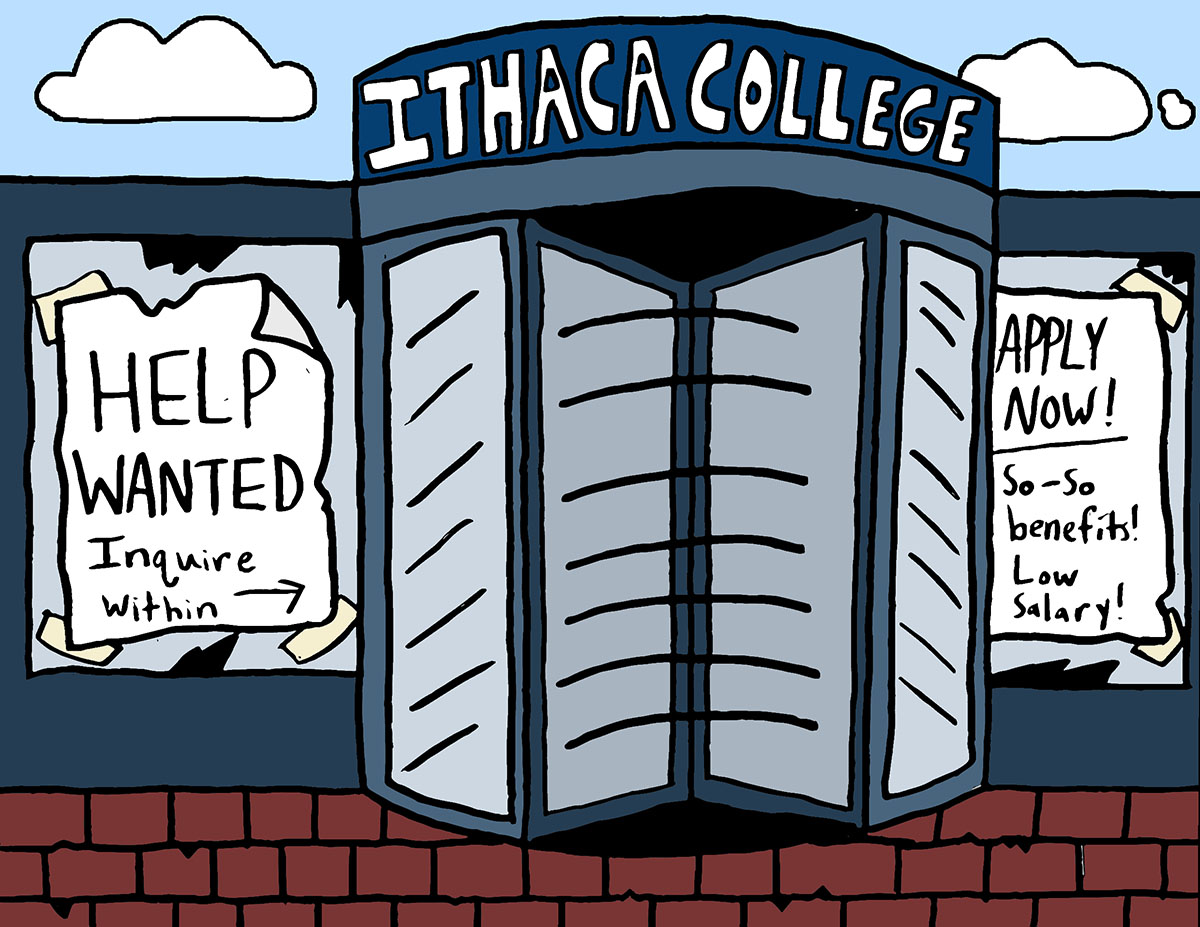No matter the school, educators are the foundation of students’ learning. Excellent educators help cultivate excellent students. However, when educators are not properly supported or appreciated, their ability to educate students dwindles. Undervaluing educators leads to high turnover rates, which can create an unstable and inconsistent environment for students. At Ithaca College, this problem is especially evident.
According to Campus Climate Survey results, 11% of faculty respondents — a 17% decrease from 2016 — said salaries for tenured and tenure-eligible faculty were competitive, compared to 40% of peers at comparable institutions. Numbers were similar for non-tenure track faculty. This data implies that one of the college’s struggles as an institution is creating a campus environment that supports faculty and staff through competitive wages.
The college has a low rate for faculty attrition, retention and upward mobility, which encourages high turnover rates. This creates a culture that fails to value professors’ abilities and voices. As a result, the school becomes a revolving door of educators instead of a space for shared growth among students and faculty.
The Campus Climate Survey is not the first time a lack of support for faculty has become apparent. The Academic Prioritization Process led to the reduction of 116 full-time equivalent faculty positions from the institution, and its ramifications are clear in the responses of faculty and students alike. With beloved educators leaving the college, the campus community saw a decline in alumni donations, reduced course offerings and a feeling of uncertainty.
In order for the resources and opportunities to accurately reflect the hard work of staff and faculty, they must be properly compensated. According to Melanie Stein, provost and senior vice president for Academic Affairs, the 2024–25 fiscal budget aims to reduce the gap between salaries for Ithaca College faculty and faculty at other universities. This marks a step in the right direction, as it is imperative that the college continuously prioritizes faculty to draw talent to campus and retain a welcoming ecosystem.
Faculty members make an environment and an institution — they are one of the most important aspects of higher education, and they must be treated in kind. There is a love for the institution from faculty and students that keeps them here, and that love must be reciprocated through support for its community.














